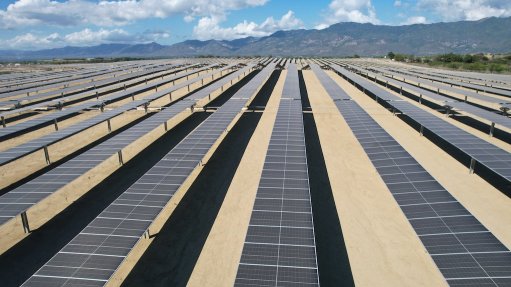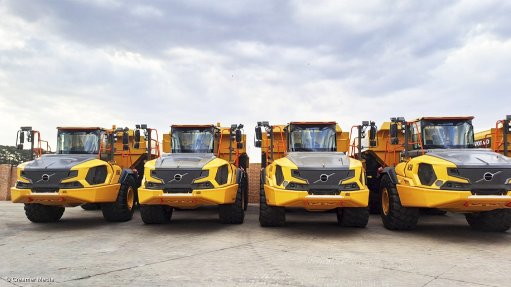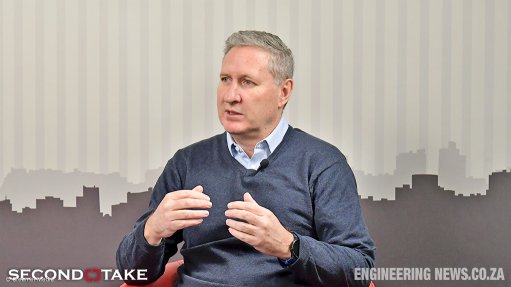Eskom power transition lacking energy, says LTM Energy CEO

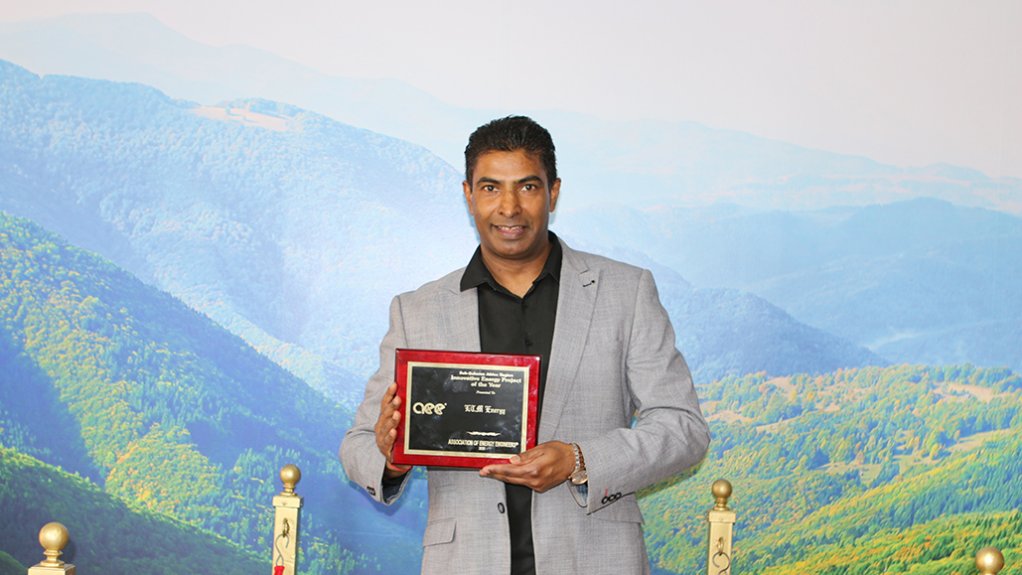
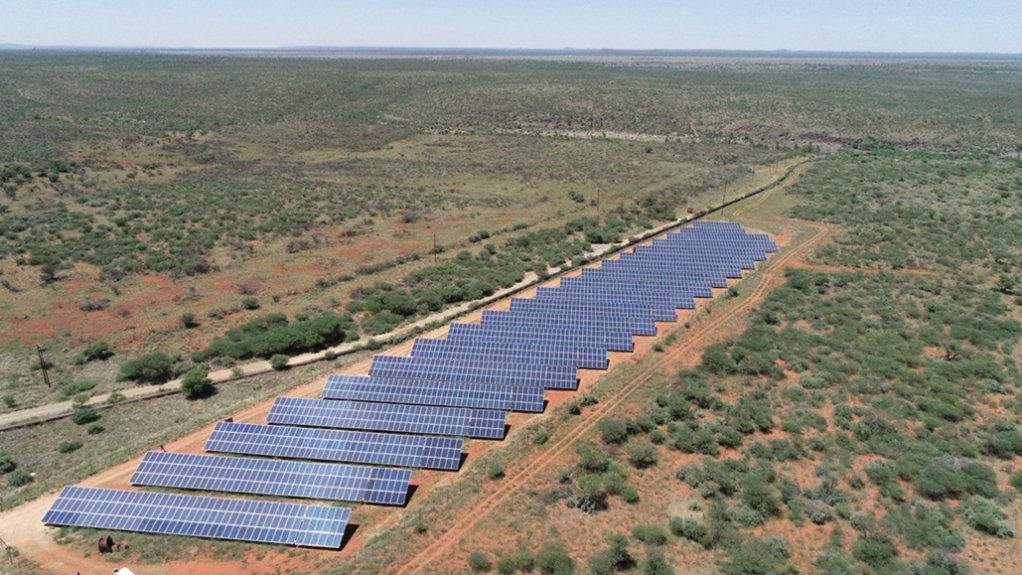
LTM Energy CEO Dhevan Pillay
LTM Energy recently won the prestigious Energy Project of the Year International Award 2021 from the Association of Energy Engineers for its Lighting up Africa project, which includes a case study on an 800 kW off grid solar project on a farm
State-owned power utility Eskom, South Africa’s largest emitter of greenhouse gasses, is not adapting to change fast enough, as the world races to achieve net-zero carbon emissions by 2050 by adopting greener energy solutions, says local energy services company LTM Energy CEO Dhevan Pillay.
South Africa is the fifteenth largest carbon emitter globally, with Eskom responsible for about 43% of the country’s total carbon emissions, owing to its significant reliance on coal-fired power to generate electricity. About 1 t of carbon dioxide is emitted for every MWh produced, according to Eskom’s 2021 Annual Sustainability Report.
Encouragingly, the European Union, Germany, France, the UK and the US pledged R131-billion over the next three to five years at COP26, the 2021 United Nations Climate Change Conference held in November, to aid South Africa’s transition away from coal to cleaner energy sources.
However, while Eskom looks to use green funds to advance the mothballing and the repurposing of its old power stations, among other initiatives, LTM Energy is demonstrating the significant potential of scalable energy savings in Africa, which, in turn, can help reduce global carbon emissions.
Significantly, the company recently won the prestigious Energy Project of the Year International Award 2021 from the Association of Energy Engineers for its Lighting up Africa project, which includes a case study on an 800 kW off grid solar project on a farm and the rollout of more than 7 000 off-grid homes across South Africa for the Department of Mineral Resources and Energy.
“This award is a testament to the goals and vision of LTM Energy in empowering Africa with clean energy and water to enhance the quality of lives through sustainable innovation,” says Pillay.
Markedly, LTM Energy is, after ten years in existence, issuing a portion of its shares to attract additional investors to scale its success stories into the rest of Africa.
While COP26, carbon tax and energy performance certification are driving compliance in the corporate sector, the biggest driver to reduce the country’s carbon emissions is not marketing, compliance or the science-based argument, it is the impact on a company’s bottom line, he stresses.
“It is common knowledge that green, clean energy, such as solar, is currently cheaper than electricity supplied by Eskom.
“If you break the country up by sector and get corporates to lead by example, achieving net-zero emissions by 2050 becomes easier,” he advises, highlighting mobile communications company Vodacom’s pledge to have 100% of its energy sourced from renewable energy by 2025 with other major companies seeking to do the same before 2050.
TECHNOLOGY TRANSITION
South Africa needs to start with small steps to position itself to achieve net-zero emissions by 2050, and there are technologies that can make this goal a reality.
While solar and wind power supplies are variable, as they are dependent on whether the sun shines and when the wind blows, this issue can be resolved if these power sources are augmented with some alternative baseload sources, such as conduit hydro, suggests Pillay.
This technology involves replacing reducing valves in larger water pipes with turbines, which are then driven by pressure head to generate baseload power at about one-third of the Eskom tariff, he states.
“Net present value is positive from day one, with a ‘no brainer’ internal rate of return and, since the turbines are concealed, there is no risk of theft.”
But even though LTM Energy has brought this technology to Eskom’s attention, leadership changes at the utility have resulted in the idea falling by the wayside, notes Pillay.
Eskom must move from a monopoly to a decentralised system, such as Germany-based energy company E.ON, where micro and mini grids are in place, advances Pillay.
Quadgeneration systems comprising advanced gas engine driven power plants, such as that employed by telecommunications network provider MTN, can be instrumental in selling power back to municipal electricity utilities.
“Looking at the business case for some corporates, quadgeneration using natural gas will be far superior than the conventional coal-fired power supplied by Eskom,” states Pillay.
There should not be any load-shedding when there are innovative ways like demand response strategies and better renewable energy mix to address the problem, he adds.
Notably, LTM Energy is providing green solutions to about 40 000 employees of financial services provider FNB and diversified financial services holding company RMB through its corporate employee rollout programme, with platinum producer Anglo American Platinum also recently coming on board. LTM Energy intends to intensify its offering to other corporate employees with a funded offering.
The Covid-19 pandemic has resulted in more people working from home, but with power interruptions, they are eager to embrace clean power storage units combined with solar.
“As a result, there is a huge demand for renewable energy solutions by the residential sector and load-shedding is helping to accelerate this growth.”
SUSTAINABILITY SPECIALIST
At the 13-year-old FNB Fairlands building, LTM Energy has achieved more than 35% in energy savings and 25% in water savings, as well as zero waste to landfill.
The company has also installed more than 2 000 kW of carport solar photovoltaic (PV) power.
“If this can be done to one building, why can’t it be replicated across the country and into Africa,” asks Pillay, who, as the Energy Services Companies Association of Southern Africa (EASA) president is keen to share this blueprint, as the purpose of the association is to stimulate the green economy.
LTM Energy is also the execution partner of the Coke Ville groundwater project, through which beverage company Coca-Cola has invested more than R17-million in solar-powered groundwater harvesting and treatment projects across South Africa since being launched last year.
There are currently nine Coke Ville projects in Limpopo, Gauteng, the Eastern Cape and KwaZulu-Natal, comprising more than 20 borehole systems and, to date, more than 130-million litres have been distributed to communities.
The boreholes were fitted with a solar pump, triple-stage filtration for purification, a motor, a control panel and a smart remote energy and water meter.
This year alone, more than 109-million litres were distributed, with 15 000 households, or 90 000 people, across the country benefitting from the project.
In addition, more than 500 water wheelers have been distributed to deserving communities, targeting the elderly, child-headed families and persons living with disabilities.
A specialist sustainability engineering company, LTM Energy prides itself on being innovative and introducing disruptive technologies so it can be a game-changer.
LTM Energy’s in-house proprietary enhanced Smart Utility Management Software is going to be “revolutionary”, believes Pillay.
It can measure utilities in real time, giving the user the diagnostics to react and resolve issues such as water leaks, promising to save money for residential, commercial and industrial developments.
“We have many business opportunities but if these do not resonate with sustainability, we will not take them on,” states Pillay, noting that companies often turn to diesel-driven power generation when they are fed up with Eskom, which is three times more costly than the electricity supplied by the national utility.
“Their mindset is not set on the operational cost; it is fixed on the capital expenditure outlay. However, the lifecycle costing must also make sense, considering that solar lasts for 20 years, while a generator comes with a five-year warranty at most.”
It is a lack of education and awareness that is hindering the uptake of renewable power, whose reliability can be improved when augmented with storage, such as lithium-ion batteries or hydrogen fuel cells, says Pillay.
“It is now time to educate individuals and corporations about what is possible, with LTM Energy even hosting events aimed at stimulating the green economy, to which its competitors have been invited,” he concludes.
Comments
Press Office
Announcements
What's On
Subscribe to improve your user experience...
Option 1 (equivalent of R125 a month):
Receive a weekly copy of Creamer Media's Engineering News & Mining Weekly magazine
(print copy for those in South Africa and e-magazine for those outside of South Africa)
Receive daily email newsletters
Access to full search results
Access archive of magazine back copies
Access to Projects in Progress
Access to ONE Research Report of your choice in PDF format
Option 2 (equivalent of R375 a month):
All benefits from Option 1
PLUS
Access to Creamer Media's Research Channel Africa for ALL Research Reports, in PDF format, on various industrial and mining sectors
including Electricity; Water; Energy Transition; Hydrogen; Roads, Rail and Ports; Coal; Gold; Platinum; Battery Metals; etc.
Already a subscriber?
Forgotten your password?
Receive weekly copy of Creamer Media's Engineering News & Mining Weekly magazine (print copy for those in South Africa and e-magazine for those outside of South Africa)
➕
Recieve daily email newsletters
➕
Access to full search results
➕
Access archive of magazine back copies
➕
Access to Projects in Progress
➕
Access to ONE Research Report of your choice in PDF format
RESEARCH CHANNEL AFRICA
R4500 (equivalent of R375 a month)
SUBSCRIBEAll benefits from Option 1
➕
Access to Creamer Media's Research Channel Africa for ALL Research Reports on various industrial and mining sectors, in PDF format, including on:
Electricity
➕
Water
➕
Energy Transition
➕
Hydrogen
➕
Roads, Rail and Ports
➕
Coal
➕
Gold
➕
Platinum
➕
Battery Metals
➕
etc.
Receive all benefits from Option 1 or Option 2 delivered to numerous people at your company
➕
Multiple User names and Passwords for simultaneous log-ins
➕
Intranet integration access to all in your organisation









